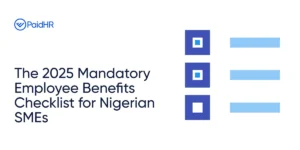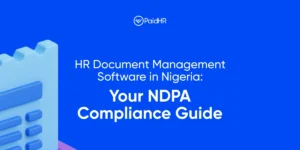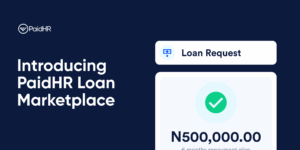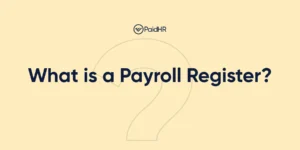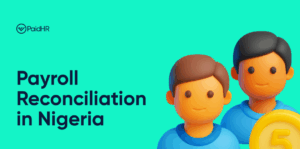The pressure is real. When an emergency hits, be it a sudden hospitalisation, an unexpected rent demand, or the dreaded “pay-before-the-deadline” school fees, the immediate panic is the same.
Payday feels a lifetime away, and you need cash now. This urgent need is precisely what the salary advance is designed to address.
It is a vital financial tool that bridges the cash flow gap between earning your income and receiving your official monthly paycheck.
This critical need for immediate funds forces a personal and financial decision. It can include carrying the fear of judgment from colleagues or managers, or worse, the risk of falling into a vicious debt trap through high-interest borrowing.
This comprehensive guide cuts through that anxiety by offering you a clear roadmap to understanding your best options and making the safest, smartest financial choice for your well-being.
The path to accessing emergency cash often presents a choice between two powerful, deeply contrasting options.
You face either the perceived safety and speed of a quiet digital transaction (often via a salary advance app or similar loan product) or the awkward vulnerability of an in-person request to your employer (the traditional HR route, governed by a salary advance agreement).
We will explore both so you can confidently choose the one that works for you.
Understanding the Salary Advance vs. Payday Loan
Before exploring how to access funds, it is crucial to understand what a salary advance loan is and how it fundamentally differs from a simple advance.
While the terms are often used interchangeably, their legal and financial implications are vastly different, especially concerning interest and risk.
A true salary advance is a direct transaction from your employer against your future pay. A salary advance loan is a separate credit product offered by a bank or third-party lender, making it a form of external debt.
Now, let us clearly discuss the two paths.
Option 1: The Internal Company Request (The HR Route)
This route is often dreaded because it forces you to expose a private, financial vulnerability to your superiors. It can feel like risking your professional standing. Let us weigh the pros and cons of asking HR for a salary advance:
The Anxiety of Exposure
You must overcome the initial shame and anxiety of approaching your manager or HR. This route strips away your privacy, making your financial stress known to the company.
The Zero-Interest Advantage
Despite the high emotional cost, the financial reward is unbeatable: it is virtually free. A direct company advance is simply your own money paid early.
Unlike an external loan with an Annual Percentage Rate (APR) that can soar past 30%, the company advance incurs little to no interest, maybe just a minor administrative fee.
You sacrifice privacy, but you save your future salary from crippling debt.
Safety and Trust
The repayment is handled through an automatic payroll deduction, which is structured, safe, and prevents the risk of you defaulting.
Handling this professionally builds a sense of loyalty and mutual trust, demonstrating you are a responsible employee who can be relied upon, even in a crisis.
When requesting an advance from a Nigerian manager or HR department, tone matters. Be professional, humble, specific, and always propose a repayment plan.
Here is a table to guide you on how to ask for a salary advance from your HR manager:
| Element | Suggestion | Email/WhatsApp Template |
| Subject Line | Needs to be formal, clear, and business-like. | SUBJECT: Formal Request for Salary Advance – [Your Name] |
| Salutation | Use a formal title. | Dear [Manager’s Name] / Dear Head of HR, |
| The Introduction | State your purpose immediately and politely express appreciation for their consideration. | I hope this message finds you well.
I am writing to respectfully request a salary advance for the month of [Current Month] due to a temporary, urgent financial need. |
| The Reason | Be brief but specific. Avoid oversharing personal details, but show it is a genuine emergency. | This advance is needed to cover an unforeseen medical expense (or: urgent school fees / critical house repair) that requires immediate payment before the official payday. |
| The Ask and Repayment plan | Be specific about the exact amount and, most importantly, show the path to repayment. | I kindly request the amount of ₦[Specific Amount].
I am comfortable having this sum deducted from my upcoming salary in one instalment (or two equal instalments from the next two salaries), as per the company’s policy. |
| Closing | A strong, professional closing that confirms your commitment. | I value the opportunity to work at [Company Name] and assure you this will not affect my work performance or dedication.
Thank you for your time and understanding. I am available to sign any required paperwork. |
| Signature | Always include your full professional details. | Best Regards, [Your Full Name], [Your Job Title], [Employee ID (if applicable)] |
Option 2: The External Digital Loan App
The immediate appeal of the loan app is speed and privacy. It’s discreet. A few taps on your phone, and the money is in your account within minutes. Your boss doesn’t have to know.
However, here are the pros and cons you need to consider before using salary advance apps:
The High Price of Speed
That convenience comes at a steep price. Nigerian digital loans are notorious for high costs. You’ll face a steep monthly interest rate (often 5% to 15% flat) plus mandatory upfront fees for management, insurance, and VAT.
The cumulative cost is a financial burden that can easily lead to a vicious cycle of borrowing to repay previous debt.
The Privacy Illusion
While the transaction is private, the recovery process is anything but. Historically, the biggest risk was privacy violation and public shaming.
These apps illegally access your contacts to harass and defame you to your friends, family, and colleagues if you missed a payment.
The good news is, the Federal Competition and Consumer Protection Commission (FCCPC) has stepped in. They have put measures in place to stop this abusive practice, made it illegal for apps to access your contacts and photos, and mandated transparency and ethical recovery.
The risk is now in falling for unregistered or illegal apps that have simply changed their name to evade the FCCPC’s sanctions and still carry out these unethical practices.
Checklist for Choosing a Reputable Salary Advance App
Before downloading and granting permissions, run a quick safety check. A reputable app will never do the following:
| Green Flag: SAFE | Red Flag: PREDATORY / LOAN SHARK |
| Regulatory Status: Explicitly listed as an approved Digital Money Lender (DML) on the FCCPC website. | Regulatory Status: Not listed on the FCCPC site; operates entirely in the shadows. |
| Data Privacy: Requests access ONLY to your salary/bank statement data for verification. | Data Privacy: Demands access to your entire phone contact list, photos, and social media (a red flag for harassment). |
| Transparency: Clearly displays all interest rates, management fees, and the Annual Percentage Rate (APR) before you accept the loan. | Transparency: Hides or changes fees after disbursement, or uses vague language like “service charge” to mask high interest. |
| Repayment: Offers a minimum repayment period of 60 days or more for a first loan. | Repayment: Demands full repayment in 7, 14, or 30 days, trapping you in a quick repayment cycle. |
| Recovery: Contacts only you via formal channels (email, in-app notification) in case of late payment. | Recovery: Resorts to public shaming by calling/texting people on your contact list with abusive language. |
IMPORTANT: In Nigeria, always check the FCCPC’s official list of registered Digital Money Lenders (DMLs).
If the app you are considering is not on that list, it is operating illegally and poses a high risk of harassment.
3 Alternative Solutions You Might Be Missing
A salary advance or loan app addresses a short-term need, but building long-term resilience requires other tools.
1. The Cooperative or Thrift Society
This is one of the most powerful and culturally relevant financial tools in Nigeria. Many large organisations (government, banks, blue-chip companies) have staff Cooperative and Thrift Societies (CTS).
How it Works: You contribute a small, compulsory monthly savings amount (deducted before your salary hits your account).
The Benefit: Once you save a certain amount, the Co-Op can grant you a loan that is often 3x or 4x your total savings, with incredibly low interest rates and flexible, long-term repayment deducted from your salary.
It is a slow start, but a massive reward.
2. The Bank Overdraft/Temporary Credit
If your salary is paid into a major Nigerian bank, you may qualify for a temporary overdraft or a small, unsecured credit line based on your monthly inflow.
This is usually faster than a full loan application and is specifically designed for small, short-term needs.
3. Earned Wage Access
While the Cooperative Society provides an excellent structure for long-term savings, it doesn’t solve the immediate, mid-month cash crunch that drives employees to loan apps.
The question for forward-thinking employees and employers is: Why should an employee have to beg for what they have already earned, or pay excessive interest to a stranger for it?
This is where the third, modern alternative comes in: Earned Wage Access (EWA).
It is neither a loan nor a salary advance. Rather, it is a benefit that allows you to access a portion of the wages you have already worked for and accrued before the official payday.
The money is yours. You simply choose the timing. It bypasses the need for an awkward request to a manager and removes the risk of predatory apps.
For employees looking for a stress-free safety net, and for employers who want to offer a high-value benefit at zero cost to the business, the solution is built into your payroll system.
If your employer runs payroll with PaidHR, you already have access to Earned Wage Access.
PaidHR enables you to:
- Access up to 100% of your earned wages at any point in the month, instantly.
- Avoid debt entirely, as you are only accessing money you have already worked for.
- Automatically reconcile your balance on payday. No extra work for you or your HR team.
By choosing EWA via a trusted platform like PaidHR, you are in charge of life’s unexpected expenses without compromising your focus at work or resorting to predatory lenders.
Choosing the Smartest Salary Advance Path in Nigeria
The right choice between using a digital salary advance loan app and making a direct HR request is highly personal, but in the Nigerian financial landscape, one option clearly offers better long-term protection.
Ultimately, the best strategy is to avoid the need for an advance altogether by building a small emergency fund. However, when an emergency strikes, always prioritise the path that involves the least cost and least risk:
Read the Salary Advance Agreement
Before you ask for a salary advance or use any app, scrutinise the salary advance agreement or app’s terms for all fees, no matter how small.
Cost is King
The in-house HR salary advance is usually the most financially prudent choice because it often provides a zero-interest bridge. Embrace the brief vulnerability over the risk of debt.
Use Sparingly
Whether you choose the HR route or an app, treat the salary advance as a parachute for emergencies only, not a monthly budget adjustment. Regular use indicates a deeper cash flow problem that no advance can permanently fix.
By treating the salary advance as a last resort and choosing the lowest-cost option available, you safeguard your financial future against the high-interest traps lurking in the Nigerian credit market.

